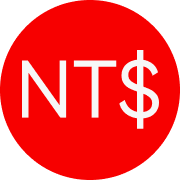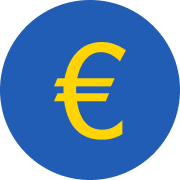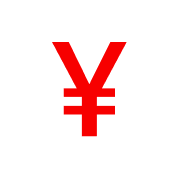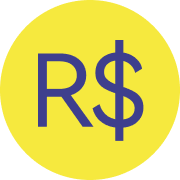
Statter Network is the world’s first full-service public blockchain platform for the metaverse ecosystem. It aims to build a high-performance and high secure infrastructure for metaverse developers, creators and players.
Centering on the infrastructure positioning, Statter innovatively created drag-and-drop technology for public blockchain generation, with which developers could build new public blockchains as easily as playing with LEGO. The drag-and-drop public blockchain generation technology satisfies metaverse application's demands for a multi-functional public blockchain; research and develop DID aggregation protocols to achieve interoperability of cross-chain digital identities; with the scalability of Sharding and DAG technology, it achieves 100,000 TPS on the main chain and transactions are confirmed within seconds; adopts a multi-layer structure with high cohesion and low coupling; and supports parallel multi-chain and multi-consensus.
Statter is an open ecosystem and platform that offers infrastructure connections in the plugin App market for 3D engines, GIS, edge computing, edge rendering, decentralized storage, digital twin, and computer vision, among others. Statter provides comprehensive services for developers to construct the metaverse from fundamental theory to a realm beyond reality by utilizing drag-and-drop technology for public blockchain generation, based on the multi-chain operation platform and the metaverse plugin App Market.



ILS information
About the Israeli New Shekel (ILS)
What Is the Israeli New Shekel (ILS)?
The Israeli New Shekel (ILS), symbolized as ₪ and sometimes abbreviated as NIS, is the official currency of Israel. ILS is the international three-letter abbreviation for this currency, which has been in use since 1986. The new shekel replaced the hyper-inflated original shekel at a ratio of 1000 to 1. At the time of its introduction, it was identified by the abbreviation NIS to distinguish it from the old shekel. The Israeli New Shekel is subdivided into 100 agorot and is also used in the Palestinian territories of the West Bank and the Gaza Strip.
The Israeli New Shekel is issued by the Bank of Israel, which is the central bank of Israel. The Bank of Israel is responsible for the design, production, and distribution of the nation's currency, as well as for implementing monetary policy, maintaining financial stability, and managing foreign exchange reserves. The bank's role in issuing currency includes ensuring the security and integrity of the Israeli New Shekel, both in terms of coins and banknotes.
What Is the History of ILS?
The term "shekel" has ancient roots, originating from a Biblical currency and unit of weight. The modern Israeli currency system evolved through various stages, starting with the Palestine pound issued by the Anglo-Palestine Bank up to 1952. This was replaced by the Israeli pound (lira yisraelit) in 1952, which was in turn replaced by the shekel in 1980. Due to hyperinflation, the old shekel was replaced by the new shekel in 1986.
Notes and Coins of ILS
The Israeli New Shekel (ILS) features a diverse array of coins and banknotes that are not only integral to daily transactions but also reflect the country's rich cultural heritage. The coin denominations include 5 and 10 agorot, and ½, 1, 2, 5, and 10 new shekels. The Bank of Israel introduced a new series of coins with updated inscriptions in 2022. The banknotes, in denominations of 20, 50, 100, and 200 new shekels. The banknotes incorporate advanced security features and are printed by Orell Füssli Security Printing in Switzerland.
Economic Stability and Exchange Rates
Since the 1980s economic crisis, Israel has adopted conservative fiscal and monetary policies, leading to a more stable economy and currency. The new shekel has been a freely convertible currency since 2003 and is traded on global markets. Over the years, the shekel has strengthened against major currencies like the US dollar, reflecting Israel's growing economic stability.
The new shekel's value has fluctuated over time against various currencies. Its exchange rate against major currencies like the US dollar, euro, and pound sterling has been influenced by global economic trends and Israel's economic policies.
Is ILS a Strong Currency?
The Israeli New Shekel is recognized as one of the world's strongest currencies, a status supported by Israel's stable economy, low inflation, and substantial foreign exchange reserves. Ranking 12th globally in foreign investment, with significant growth in recent years, the shekel benefits from Israel's robust economic performance and investor confidence. The thriving technology sector and strategic global trade position further reinforce its strength. As a free-floating fiat currency, the shekel's value, notably strong against the US dollar, reflects market trust. Despite potential sensitivities to regional geopolitics and internal political shifts, the shekel's resilience, especially during global economic downturns, indicates a promising outlook for Israel's economy and its currency.
What Is the Difference Between Israeli New Shekel and Israeli Old Shekel?
The transition from the Israeli Old Shekel to the Israeli New Shekel marked a significant shift in Israel's monetary history, primarily driven by the need to combat hyperinflation and stabilize the economy. The Old Shekel, in circulation from 1980 to 1985, suffered from severe devaluation and economic instability, leading to its replacement in 1986 by the New Shekel at a ratio of 1000:1. This change was a crucial part of Israel's broader economic stabilization plan, which included adopting more conservative fiscal and monetary policies. The introduction of the New Shekel not only curbed the rampant inflation but also restored confidence in the national currency. It brought with it new banknotes and coins featuring updated designs and enhanced security features, reflecting both the cultural aspects of the time and the need for a more robust and stable monetary system.
STT to ILS conversion rate trend
STT to ILS market statistics
More info about Statter Network on Bitget
Current STT to ILS exchange rate
Statter Network to Israeli New Shekel is falling this week.STT to ILS Conversion tables
The exchange rate of Statter Network is decreasing.STT to ILS
ILS to STT
STT to ILS Today vs. 24 hours ago
| Amount | 05:40 am today | 24 hours ago | 24h change |
|---|---|---|---|
| 0.5 STT | ₪0.2028 | ₪0.2110 | -3.85% |
| 1 STT | ₪0.4057 | ₪0.4219 | -3.85% |
| 5 STT | ₪2.03 | ₪2.11 | -3.85% |
| 10 STT | ₪4.06 | ₪4.22 | -3.85% |
| 50 STT | ₪20.28 | ₪21.1 | -3.85% |
| 100 STT | ₪40.57 | ₪42.19 | -3.85% |
| 500 STT | ₪202.83 | ₪210.96 | -3.85% |
| 1000 STT | ₪405.66 | ₪421.92 | -3.85% |
STT to ILS Today vs. 1 month ago
| Amount | 05:40 am today | 1 month ago | 1M change |
|---|---|---|---|
| 0.5 STT | ₪0.2028 | ₪0.3286 | -38.26% |
| 1 STT | ₪0.4057 | ₪0.6573 | -38.26% |
| 5 STT | ₪2.03 | ₪3.29 | -38.26% |
| 10 STT | ₪4.06 | ₪6.57 | -38.26% |
| 50 STT | ₪20.28 | ₪32.86 | -38.26% |
| 100 STT | ₪40.57 | ₪65.73 | -38.26% |
| 500 STT | ₪202.83 | ₪328.63 | -38.26% |
| 1000 STT | ₪405.66 | ₪657.25 | -38.26% |
STT to ILS Today vs. 1 year ago
| Amount | 05:40 am today | 1 year ago | 1Y change |
|---|---|---|---|
| 0.5 STT | ₪0.2028 | ₪2.25 | -90.99% |
| 1 STT | ₪0.4057 | ₪4.51 | -90.99% |
| 5 STT | ₪2.03 | ₪22.53 | -90.99% |
| 10 STT | ₪4.06 | ₪45.05 | -90.99% |
| 50 STT | ₪20.28 | ₪225.27 | -90.99% |
| 100 STT | ₪40.57 | ₪450.53 | -90.99% |
| 500 STT | ₪202.83 | ₪2,252.65 | -90.99% |
| 1000 STT | ₪405.66 | ₪4,505.3 | -90.99% |
How to convert STT to ILS



Buy STT (or USDT) for ILS (Israeli New Shekel) offers
| Merchants (trades/completion rate) | Price | Amount/limit Low to high | Payment methods | Zero fees Action |
|---|
Sell STT (or USDT) for ILS (Israeli New Shekel) offers
| Merchants (trades/completion rate) | Price | Amount/limit High to low | Payment methods | Zero fees Action |
|---|
What factors influence the conversion rate of STT to ILS?
Statter Network price prediction
What will the price of STT be in 2026?
What will the price of STT be in 2031?
Other crypto price predictions
 Bitcoin(BTC)Price predictions
Bitcoin(BTC)Price predictions Ethereum(ETH)Price predictions
Ethereum(ETH)Price predictions Celestia(TIA)Price predictions
Celestia(TIA)Price predictions Solana(SOL)Price predictions
Solana(SOL)Price predictions Worldcoin(WLD)Price predictions
Worldcoin(WLD)Price predictions Bittensor(TAO)Price predictions
Bittensor(TAO)Price predictions Dogecoin(DOGE)Price predictions
Dogecoin(DOGE)Price predictions PepeCoin(PEPECOIN)Price predictions
PepeCoin(PEPECOIN)Price predictions Pandora(PANDORA)Price predictions
Pandora(PANDORA)Price predictions ORDI(ORDI)Price predictions
ORDI(ORDI)Price predictionsBitget Earn
APR
Purchase other cryptocurrencies with similar market cap
Popular Statter Network Converter









Popular cryptocurrencies to ILS










Discover more cryptocurrencies
Latest coin listings on Bitget
FAQ
What is a cryptocurrency calculator?
How does a cryptocurrency calculator work?
How accurate is a cryptocurrency calculator?
Can I trust the results of a cryptocurrency calculator?
Can I use a cryptocurrency calculator for tax purposes?
Can a cryptocurrency calculator be used to convert one type of cryptocurrency to another?






































